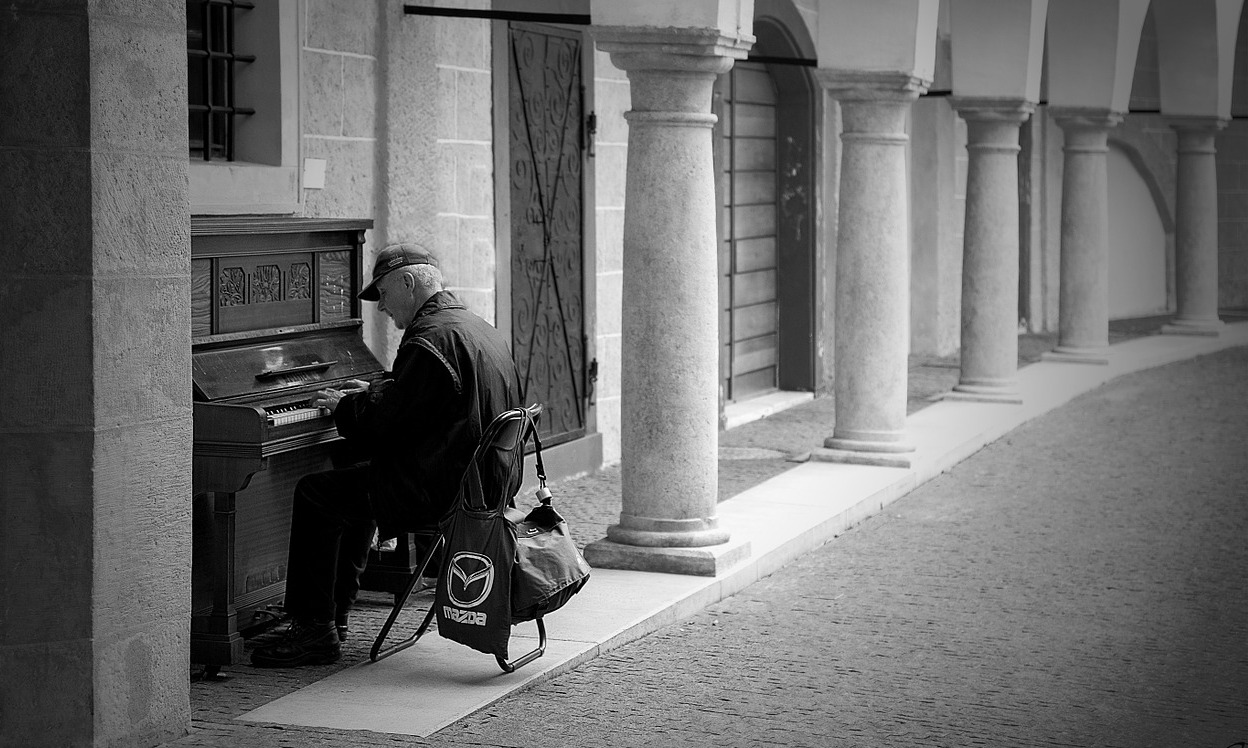“Okay, well, why don’t you try that again, maybe a little slower this time?” I must have heard my piano teacher say this hundreds of times as a child. Despite his great patience, the extent of which I didn’t understand until years later, this was one of the most difficult musical lessons for me to learn: to learn a piece of music, you have to slow down. Learn one hand at a time. Pay attention to the phrasing. Make sure the fingering is sound. Drill the difficult passages. Slow down.
In my foolhardy eagerness to learn a new piece, I would usually ignore my teacher’s advice (not maliciously but carelessly), pounding and hammering my way through it a tempo even though my fingers couldn’t yet keep the pace. I never quite resolved my impetuosity in learning music; even today, when trying to tackle a new piece, I almost always take it too fast too soon, and I end up not learning it as well as I’d like.
It may be banal to say so, but the modern world’s emphasis on efficiency has made us lose sight of the value of slowness. Too much haste robs us of the fullness of whatever it is we’re zooming through: not just sonatas, but also meals, walks (it’s worth mentioning that Aristotle’s magnanimous, or great-souled, man walks slowly), books, conversations, relationships—and prayer.
Prayer requires a certain spiritual attentiveness, an attentiveness that requires a certain slowness. It can be easy to rattle off a set of prayers in the morning or evening, for example, but if this becomes so fast and unthinking that it’s hardly noticed, habitual distraction will thwart your prayer. Or, when racing through the rosary, speed can supplant prayer here too; all of a sudden you’re beginning the fourth mystery and you can’t remember which set of mysteries you’re even praying. Spiritual attentiveness is the key. Even something as simple as the sign of the cross, when done slowly and deliberately, can open us up to the inner workings of God in our hearts.
The same principle goes for the Bible: speedreading the word of God is not the most conducive path to spiritual growth. As novices, when we were being instructed in lectio divina (after all, preachers of the Word need to be fed by the Word—St. Dominic knew this well), our novice master told us that he didn’t want us reporting to him at the end of the novitiate year that we had done lectio with the entire New Testament, because he knew that such a fast pace wouldn’t be helpful. St. Aelred of Rievaulx speaks beautifully of the “honeycombs of Holy Scripture.” Honey flows slowly, and its delightful sweetness is best experienced in frequent small doses rather than quickly and all at once. Praying with Scripture is the same way: even a single verse can be filled with spiritual riches, which usually will be discovered only if we slow down and spend some time in prayer with the sacred text.
A slow pace is the pace of a learner, and especially in the spiritual life, we’re always learners, drinking deeply from the waters of wisdom. The one who rejoices to meditate on the words of the Lord is like a tree planted near streams of water (Ps 1:3), which will become in him a spring of water welling up to eternal life (Jn 4:14). Ultimately, of course, the pace of our progress is up to God: he catapults some to great sanctity in a flash, while others he gently guides by the hand. For both the fast-track saint and the spiritual slowpoke, prayer need not be a frenzied affair, for the Lord knows what we need before we ask him (Mt 6:8). Taking our time in prayer can yield great fruit; prayer isn’t a checklist but a living relationship with God, by which we come to know him and love him above all else. And love is patient (1 Cor 13:4).
✠
Image: Ferobanjo, Piano Player







